|
The Thursday Thesis - 30/4/2020
I love teaching guitar! This won’t surprise any of my guitar students – they’re used to me grinning and laughing during lessons. What does surprise them though is the simplicity of many of their favourite songs. It’s a funny thing, but it keeps on happening. Heads are shaken, brows furrow, and "it can't be that easy..." is regularly heard. It's as though I'm breaking some kind of rule, making playing guitar so simple and easy... But that's because there's a type of thinking error known as misattribution – the assigning of qualities to a person or thing which has nothing to do with the real qualities they possess. I did it myself for years – decades actually – and it really didn’t help at all. These days, not so much. Here's how the misattribution error goes for music fans and wannabe guitar players, singers, and just about everybody else:
Obviously, there’s no causal link between liking a piece of music and it being a technical challenge to play. In fact, the more popular a piece of music is the less complex it tends to be. If you don’t believe me, just listen to the mainstream radio stations: most of what you’ll hear are short loops of a few simple chords, assembled into blocks (usually called introduction, verse, chorus, middle 8, bridge and outro) and produced to make them more interesting and variable than their deep structure really is. I’m not knocking it – I’m just pointing out that the reality of music is not what we think it is, most of the time. So reflect on this little thought: before music became something you bought – as a recording of some type – music was something you did; something you made for yourself, just for the fun of it. Back then, almost everyone would get up and sing, play something and join in with whoever else was playing. Back then it was easy and commonplace – so how did so many of us get convinced that we needed to have a “gift” or a special talent? We fell under the hypnotic power of marketing, hype, bullshit, and the loud voices who seemed to know what was what. Did music get harder, or did we get stupider, less “talented” and less musical? Or did we just allow ourselves to be deceived by charlatans - and our own assumptions? © Neil Cowmeadow 2020 Please Like and Share The Thursday Thesis with your friends, family, and your chosen deity. I’d love to hear your comments, along with any ideas you’d care to hurl at me. Info@NeilCowmeadow.com
2 Comments
The Thursday Thesis - 2/4/2020, updated
Am I alone in noticing that the BBC has abandoned any pretence of being anything other than a single-issue propaganda channel? If you apply what I call “Precision Listening” it’s obvious. All you have to do is listen very carefully to what’s being said. Listen to the words used to convey the underlying message, because the words are often deceptive, and this is no accident. State broadcasters employ the best writers to carefully craft news scripts: the words are carefully selected, ordered and tickled to do a very particular job and to convey a very particular message. So – for those who understand that the words used (what Noam Chomsky called the “surface structure” of communication) can greatly modify the message conveyed (the “deep structure”) these are interesting times. For weeks it has been ramping-up COVID-19 stories, progressively giving over more and more time in bulletins until we’ve finally arrived at today – where every minute of the BBC’s “news” coverage is scary stories and inflammatory opinion on the speed, severity and deadliness of this bogeyman virus. If you ever suspected that there was an agenda being peddled by our state-funded (state-controlled) broadcaster, Precision Listening and recent events will confirm your suspicions. Listen closely to the weasel-words in the scary stories and you’ll begin to notice that daily mortality figures are now referred to as “connected with COVID-19”. Hang on a second – only a couple of weeks ago this COVID-19 was being portrayed as a deadly killer, but now it seems to be only a component in a death. This sinister shift to weasel-words looks like a guilty person backing away from what they’ve done; for whatever reason, the Beeb has moved its position by changing the words of its carefully-prepared script. And here’s a little quote from the Office of National Statistics, from their bulletin dated 7 April 2020: “Looking at the year-to-date (using refreshed data to get the most accurate estimates), the number of deaths is currently lower than the five-year average. The current number of deaths is 150,047, which is 3,350 fewer than the five-year average. Of the deaths registered by 27 March 2020, 647 mentioned the coronavirus (COVID-19) on the death certificate; this is 0.4% of all deaths.” (Source: https://www.ons.gov.uk/peoplepopulationandcommunity/birthsdeathsandmarriages/deaths/bulletins/deathsregisteredweeklyinenglandandwalesprovisional/weekending27march2020) I kid you not – in the midst of this appalling, scaremongered “pandemic”, FEWER people are dying than the average for the previous five-year period. That’s the overview of REALITY, not the twisted, stilted and distorted story we’re being fed by the state’s media mouthpiece. Consider this fact - from the ONS's figures: deaths from "Flu and pneumonia" are down, whilst COVID-19 deaths are up. The numbers nett-out to the normal rate for this time of year. So the question must arise: is COVID-19 simply a bad strain of 'flu? What do you think? You won't find the answer in the Government briefings, the Fake News or the Weasel-Words of the mendacious bastards at the BBC. © Neil Cowmeadow 2020 Please Like and Share The Thursday Thesis with your friends, family, and your chosen deity. I’d love to hear your comments, along with any ideas you’d care to hurl at me. Info@NeilCowmeadow.com Our Darkest Day is Here and Now
Quiet, isn’t it? Hardly a car on the road, not a soul in the lane, no beer in the pub. That’s the sound of submission and acquiescence; that deafening stillness is freedom’s dying, silent scream. With hardly a murmur of dissent, the sheeple of Britain have applauded the theft of their personal freedom – all in the name of a disease less deadly than the annual ‘flu season. Last Tuesday was the darkest and most shameful day in our history. We will live to rue the day. The blustering dolt we elected to the office of Prime Minister imposed sweeping draconian restrictions on every single one of us. Yes, the loveable clown, Blundering BoJo, seized almost absolute power with hardly a dissenting murmur of concern. Hardly anyone said a dickie-bird about it. It was a supremely slick seizure of power: any common-or-garden dictator would be envious. They call it “Lockdown” – because it’s so much less inflammatory than “House Arrest”, don’t you think? The media praised and the public applauded, not counting the losses or considering the legacy we are bestowing on the next generation and many generations still to come. And so began a suicidal, manufactured, economic catastrophe, in which our kids have been sold into future slavery to pay back the mountains of imaginary money borrowed by government to be thrown willy-nilly at the smoke and mirrors “pandemic”. Cowardly people-pleasing politics, exalting the Sacred Cow of the NHS, or something altogether more dark and sinister? Let’s be clear here: people will die of COVID-19, because viruses kill people – especially sick people. Viruses are a fact of life. People die. That’s a fact of life. But the choices being made “on behalf of the British People” seem to miss those two vital facts, and the ensuing immorality of selling my son, and all of your sons and daughters into a lifetime of debt slavery is beyond me. My gorgeous boy and every single one of your gorgeous girls and boys will be gifted the debts of these cowardly politicians, goaded into action by the corrupt media and the mass outcry of the gullible herd. It sickens me to see Britain – and much of the World – spooked by a so-so disease which has been marketed as a “pandemic” by the corrupt World Health Organisation. Frankly, it’s unbelievable that the WHO is taken seriously by anyone. This is – after all - the same World Health Organisation which thought Robert Mugabe (the notoriously corrupt former president of Zimbabwe – yes, that Robert Mugabe) would be a suitable “Goodwill Ambassador”. The same World Health Organisation whose Director-General is accused of suppressing news of Cholera epidemics in Ethiopia and Eritrea in order to shield political cronies. Mugabe was forced out of the post after a day or two, but the stench of corruption hangs around the WHO and Dr Tedros, who remains in office to this day. The WHO estimates that up to 650,000 people die of ‘flu every years – COVID-19 stands at a paltry 47,174 deaths. Flu doesn’t blow-up the economy, neither does it rob people of their freedom of movement and association, the right to assemble, or put them under house arrest. We’ve always had ‘flu and we probably always will. We’ve always had freedom, of a sort, but not any more. How many lives would Government spend to fight a hot war for freedom against an oppressor? Many, many times more than C-19 will cost. But the unfought battle is already lost. Freedom will be returned to us, but not in full. There will be no full roll-back of the “Johnson Decree”. We, and all our children – and all of their children - we will all be poorer as a consequence of this irrational madness and the monstrous theft perpetrated in broad daylight. The story so far:
And the future?
I don’t know about you, but that looks pretty grim to me. But the biggest loser was our collective ability to think. To dispassionately consider the facts, look beyond soundbites, disreputable politicians, self-appointed “experts” and government sidekicks, to ask difficult, penetrating questions and be courageous in the face of Truth. The war has already been lost, and in War the first casualty is Truth. Lockdown is the new Normal, so get used to it, because it will get worse – probably much worse. Little by little the ratchet will be applied: tightened, released a little, then tightened a little more; over and over again. You were warned, oh yes you were warned. Episode 178 - White Belt Mind
The Thursday Thesis - 21/11/2019 It is said that when one begins the journey into Buddhism the hardest thing to do is to clear one’s mind: to achieve Shoshin – the so-called Beginner’s Mind. Shoshin is an empty mind; no preconceptions and open to anything when studying a subject. And it is a mind without place-markers for meaning or a frame of reference the initiate can easily feel lost and disoriented. In meditation we should try to simply be: to quiet the seemingly incessant chatter of our “Monkey Mind” which is our usual waking state – unsettled, restless, capricious, whimsical, fanciful and inconstant; confused, indecisive and almost completely uncontrollable. Monkey Mind's thoughts rise up inside us, capture and fixate our attention, then fade into darkness like fireworks in the night. The aim is to simply empty one’s mind and notice what comes and goes, without reacting or judging, usually by paying attention to one’s breath and the flow of air into and out of the body; to observe our Monkey Mind thoughts rise, subside and fade, only to be replaced by more thoughts, which – in turn – also pass and are replaced, endlessly and continuously. All that Monkey Mind sounds pretty tiring to me. In Beginner’s Mind we accept that we know nothing – because we are beginners (the clue is in the name). When newcomers to the guitar come for their first lesson the biggest problem is that they already know that learning to play guitar will be difficult, that they have no talent, no rhythm, that there are no musicians in their family, etc, etc, etc. Their Monkey Mind has been yapping away for years – often decades – based on knowing bugger-all about playing guitar! Yep, based on no knowledge of the instrument they (we, really – because I used to “know” how hard it was to play guitar, too) have convinced themselves of a whole bunch of unhelpful things, so the very first (and most important) thing in the lesson will be the systematic elimination of those beliefs – to engender their Beginner’s Mind and to clear away their unfounded certainty. Subduing Monkey Mind takes time and... And what? Not effort, but attention. Once you become aware of Monkey Mind and simply notice its prattle, you can let it talk and talk – allow it to rage and rail, worry and fret – notice that thoughts rise and subside, endlessly forming and drifting away. You come to realise that most of it is just nonsense and, over time, become less attached to your thoughts and reactions: the mind clears and empties itself. We can come to understand that we know nothing and in so doing begin to learn the first lesson. The lesson is that it’s not what you don’t know that hurts you, it’s what you know damned well and that isn’t true that hurts you. Your Monkey Mind dances with untruth, worry and your own fears turned back in on yourself, and by stilling that Monkey chatter you can open up your mind to learning. The first step to learning to play the guitar - or anything else for that matter - is to clear away the untrue, the second is to acquire the true. © Neil Cowmeadow 2019 Please Like and Share The Thursday Thesis with your friends, family, and your chosen deity. I’d love to hear your comments, along with any ideas you’d care to hurl at me. Info@NeilCowmeadow.com The Thursday Thesis - 10/10/2019 When I was a freckly sprog I’d sit and watch the flames and glowing coals of my grandma’s open fire – it’s something I love to do, even now. Shapes change, bright spots flare and subside, and shapes shift to become.... Well, what exactly? More often than not it’s a face – not the face that my great grandma warned me about, because that was always the devil’s face I had to be careful of – or something that looked enough like a face for my eyes and brain to connect the dots of randomness until they began to resemble the familiar. We all do it – it’s a universal human trait with its own fancy name: pareidolia. According to the Merriam-Webster Dictionary it is “...the tendency to perceive a specific, often meaningful image in a random or ambiguous visual pattern...” It turns out that we humans are wired to sort for the familiar and especially for other humans – which is no surprise given our evolutionary need to find food and a mate. But the most important word in that definition is “familiar” because we can manage what becomes familiar to us – it’s something we have control over. If we have love and security, that’s what we’ll expect to be around us and we’ll seek out love and security. Likewise, if we are surrounded by mistrust, hate, violence and division – such as our news programmes are crammed full of – then guess what...? Yep – we’re going to expect to find that everywhere we go. So when we begin to remove undesirable things from our lives (top tip: start with your television) that will begin to reduce our tendency to find those things in random events and objects. When we don’t have doom, gloom and depravity forced down our throats every day, then guess what – we see less of it in our everyday environment. Conversely, if we are surrounded by positivity and optimism, we will recognise those things in apparently random objects and occurrences, instead. So, looking at ambiguous images such as the ten inkblots of the Rorschach inkblot tests can indicate what a person’s biases are, as the viewer “projects” what they think should be present onto the random shape of the inkblot. So next time you glimpse a face in a cloud, or notice that a car’s front-end seems to wear a certain expression, relax – you’re not going mad, you’re just seeing things. And that’s ok by me. © Neil Cowmeadow 2019 Please Like and Share The Thursday Thesis with your friends, family, and your chosen deity. I’d love to hear your comments, along with any ideas you’d care to hurl at me. Info@NeilCowmeadow.com Episode 168 - The Art of Looking Sideways
The Thursday Thesis - 12/9/2019 I can’t remember when I first heard the phrase “a sideways look”, but I do remember that it was in a story of a wise woman facing down a villager who accused her of witchcraft. In the story that Sideways Look was all suspicion and contempt as the wise woman cowed her accuser. And it’s such a funny idea, looking sideways, that it stuck with me. Tumbled by time and stained by my ribald life it’s acquired a new meaning for me, no longer is it haughty contempt – not in my sense of the phrase, anyway. No, for me it’s become a look of deep curiosity, this sideways look. Maybe it’s like the look of romantic interest, sudden curiosity and potential passion, and maybe it is charged with suspicion; but whatever it is, you know a sideways look when you get one. Time freezes briefly when someone looks at you that way. We feel our souls are being scrutinised by a sideways look, our very essence assayed and examined. And it all happens in an instant. That Sideways Look takes nothing at Face Value, it asks questions and weighs things up. When you Look Sideways you don’t just begin to think about what was said – you begin to factor-in who said it, how they said it, the context in which it was said, and what they did not say. Whatever the delivery media - Speech, book, video, commercial, print ad, radio or TV show - you begin to probe the speaker’s motives, their choice of words, their body language and posture, vocal nuances and rate of speech. Looking Sideways isn’t just about face-to-face encounters with real people, and it definitely applies to advertising, marketing, mainstream media, social media, music and the Arts A sideways look is really critical thinking, looking beyond and around, as well as into and through, the surface of events, messages, conversations. It squints at what is being shown, listens intently for what is said, hears the creaking of distortion and the sly whisper of Spin – moreover, it reaches into the dark silences of what is being left out. © Neil Cowmeadow 2019 Please Like and Share The Thursday Thesis with your friends, family, and your chosen deity. I’d love to hear your comments, along with any ideas you’d care to hurl at me. Info@NeilCowmeadow.com The Thursday Thesis - 05/09/2019 Comfort will drain your life of all meaning. Comfort will make you irrelevant. Comfort is your sworn enemy. Comfort will kill you, Stone dead. I was talking to a lady a couple of days ago - you know, all about life and stuff. She’d had a successful career and was looking forward to a “comfortable retirement” in a few years. That seems such an old-fashioned image: drifting off into a quiet life of pottering around, fading by degrees into invisibility, a thirty-year waiting room before the last, long, lie-in. There’s something deeply offensive about the word “comfortable”, at least to me. There’s a suggestion of irrelevance, of ineffectuality about it. Humans are built to strive, learn and grow – it’s what really makes us tick. If life is comfortable we are likely to become unhappy as we lack obstacles to overcome, challenges to meet, dreams to capture and dragons to slay. There seems something disturbing about being comfortable – a curious sense of drifting and lack of purpose. It’s probably just me, projecting my own hang-ups onto the word. But I would hate to be comfortable. In fact, I shudder when I imagine having no reason to get out of bed. Reason tells me that if I’m not busy growing I’m probably shrinking, because only making a demand on our bodies will stimulate growth and repair. Without stress, without challenge, we may not even maintain our status quo. I’m not ready to shuffle off into someone else’s dream of a comfortable retirement – are you? That’s an old dream, peddled by people who were sold it themselves, only to find it hollow when they got there. Get uncomfortable. Do something that takes you outside of your comfort zone. Push your boundaries, because they are shrinking in on you every single day, whether you like it or not. If you don’t push back, you’ll shrink and fade away. Keep pushing back. Get busy doing that thing you’ve always wanted to do – you know which one I mean, don’t you? It’s the thing that scares the living crap out of you: maybe it’s learning to play guitar, run a marathon, start a business, leave your job. You know I’m talking to you, in particular, don’t you? The time is now. This is your moment. This is your life ticking away. Only you are standing in your way, because The Universe is too big, cold and indifferent to care about you, one way or the other. In fact, The Universe really doesn’t give a fuck about you, so get over it and get uncomfortable doing that scary big thing. Get out of your own way and do it. Don’t get comfortable. © Neil Cowmeadow 2019 Remember to Like and Share The Thursday Thesis with your friends, family, and anyone else. I’d love to hear your comments, along with any ideas you’d care to hurl at me. Neil@cowtownguitars.net Episode 166 - Observe The Masses...
The Thursday Thesis - 29/8/2019 Within the world of business, finance and investing, Warren Buffet is pretty much a legend in his own lifetime. Now in his 80’s the Chairman of the Berkshire Hathaway investment fund is still playing The Game he loves most – the Game of Money. You might ask “Why would he want to keep on working at his age?” Because it is his game – his fascination and his calling. He certainly isn’t in it for the money itself: with a personal net worth of around 80 Billion dollars it would be hard to make much of a dent in his fortune. In fact, that amount of money invested at just 3% would earn him an eye-popping 2.4 Billion dollars a year, pre tax. He's a lone wolf - happy to pursue his own passions and interests when it flies in the face of popular opinion. Buffet is, by nature, a contrarian - believing that he should try be brave when everyone else is fearful, and when everyone else is brave – he should be fearful. Part of his philosophy is, in essence, Observe The Masses – Do the Contrary. There’s a curious logic to the way he thinks: reasoning that there are fewer successful investors than unsuccessful investors, those in the minority have the best odds of success. Observe the masses... It works across all areas of life – even learning to play guitar – where the most common approach is to “teach yourself” what you don’t know how to do, and only a minority book themselves in with a teacher to accelerate their progress. That’s why most wannabe guitarists quit or are frustrated and stuck. Observe the masses... Work surveys constantly report that around 70% of people hate their jobs, approximately 25% are indifferent and only around 5% of people actually get paid for doing work they really enjoy. Observe the masses, do the contrary. When everyone around you is moaning about the economy, Brexit, the state of the country, or how crap the local football team is doing this year, feel free to run the other way. Consciously choose to be positive instead – don’t get caught up in a game of one-downsmanship with people who are more negative than you are. You know the game, don’t you? It’s the one where – no matter how big their problem is, yours is so much worse. When the usual crowd are milling around - moaning and bitching about the crap on TV last night, the price of a pint or that trollop from accounts and her new shoes – run. Just get yourself away from their tractor beams before you are sucked into their negative vortex and begin to compete for the “My Life is Crappier Than Yours” prize. There’s a lot of competition for that award, but even if you won it, you’d still be a loser. Given the choice between what most people do and what the minority do - day in, day out – do you want to run with the pack or howl with the lone wolves? Be more wolf: Observe the masses, do the contrary. Harrrroooouul!! © Neil Cowmeadow 2019 Please Like and Share The Thursday Thesis with your friends, family, and your chosen deity. I’d love to hear your comments, along with any ideas you’d care to hurl at me. Info@NeilCowmeadow.com The Thursday Thesis -22/8/2019
Precise. Specific. They are two words I adore. They’re solid words, and there’s something very reliable and dependable about them: they stand for accuracy and certainty, a gimlet-eyed no-nonsense attention to detail and a straight-backed “X marks the spot” rigour that borders on being finicky. I love the words, but recoil from their rigidity. Nobody could argue against Precision and specificity in the study of absolute measurements: mathematics, logic and the like. But they’re words which don’t play nicely. Their strictness excludes them from the creative act, because they lack the sense of fun which is the hallmark of invention, creativity, the arts and true insight. They are also the sworn enemies of learning. So, how do we learn best? It turns out that learning can be learned and accelerated - just like any other skill. The trick is to begin with what I call Useful Generalisations: the core ideas which are true for the great majority of cases, the great majority of the time. In other words, find out what works most of the time, and which – logically – has the highest probability of being correct, most of the time. With the most common and therefore most useful concepts secured, we can shift our attention to the next most likely occurrences: the most common exceptions to the Useful Generalisations. By noting their deviations from the Useful Generalisations we can develop a set of rules – an algorithm – we can now handle the great majority of situations and occurrences. This learning pathway always delivers the most “Bang for the Buck” for us, because it always attends to the highest-returning investment of our time first, and prevents us from becoming lost in the fine detail of the seldom-encountered, the rare, and the unusual. So to begin learning anything always try to find experts - teachers, coaches and mentors to show you the most important ideas first. With hindsight, trying to teach myself something I didn’t know how to do was not a wise approach, and it cost me too much time. Yet I tried it, and the chances are that you have done so, too. The Broad Sweeps, the Big Ideas and the Useful Generalisations must come before the unlikely, the Rare, the Precise and the Specific, because (to quote Goethe) “...the things which matter most must never be at the mercy of the things which matter least...” © Neil Cowmeadow 2019 Please Like and Share The Thursday Thesis with your friends, family, and your chosen deity. I’d love to hear your comments, along with any ideas you’d care to hurl at me. Info@NeilCowmeadow.com The Thursday Thesis - 18/7/2019 Steve Jobs of Apple told the graduating students of Stanford University “...you can’t connect the dots looking forward; you can only connect them looking backward. So you have to trust that the dots will somehow connect in your future.” To put it another way, when you are further down the line, you can look back and see the turning points and decisions that got you to where you are: you can see how everything connects up along the way and – from the future’s perspective – make it seem inevitable that things turned out the way they have. For most of us, “Looking forward to the future” is a pretty good description of how we think, because when we imagine the future we usually create images and visions of the future in front of us, and usually dead-centre. Maybe it’s because humans’ normal direction of movement is forward that we hold the future in front of us, as though we could step into it in the same way we walk to the corner shop. But the future is more like a fall, backwards into the unknowable, looking at the “dots” which preceded the fall. This is why imagining your future is vital to any kind of planning and personal growth; by visualising our future we can “step in to” our idealised, imagined future and observe our course from that position. We can visualise the steps of the journey which culminated in that imagined future, notice the turning points and critical moments, the decisions and actions which shaped the pathway to where we imagine we want to go - our imagined future. You can’t do it from where you are, but you can fast-forward into the future and look back, joining the dots and admiring how perfectly the route you took got you to where you wanted to be. What’s your future going to look like - and when you look back from it, which dots will you connect up? © Neil Cowmeadow 2019 Please Like and Share The Thursday Thesis with your friends, family, and your chosen deity. I’d love to hear your comments, along with any ideas you’d care to hurl at me. Info@NeilCowmeadow.com The Thursday Thesis - 20/6/2019
I have a voice in my head. You have a voice in your head, too. If you think you don’t, whose voice was it that just said “no I haven’t”? We all have voices in our heads – not the schizophrenic’s auditory hallucination kind of voices – but the voices that haunt us and screw us up. They’ve been around for so long that we usually accept them as permanent and just another part of us: they’re part of our identity, even though they are usually just repeating echoes of long-ago, distorted, corrupted and twisted by time. Mine is the schoolteacher who told me that I’d never amount to anything, and the protective parental voices counselling me to not take risks and to find a nice, safe job. They lurk just below the level of my ear, slightly behind my right shoulder – the same place they’ve always been. What’s yours like? Maybe – like me – you’re still hearing the words of someone with authority and upon whom you depended for approval or love, all rolled together into the voice of your Inner Critic And maybe you’ve been listening to them talk crap about you, too - maybe for decades - just like my own inner voices have been talking trash about me and giving me their ten cents’ worth for decades, making me play it safe and doubt myself. Well, they used to do that... You see, a little while back, I got lucky. James, one of my mentors, showed me how to turn my own inner critic (a.k.a. my “Inner Bastard”) into my new Best Friend Forever. As he guided me through the process, he asked “...the voice in your head is always in the same location when it speaks to you, isn’t it?” “Uh-huh...” I agreed. He pressed on “...And it always has the same characteristics of tone, volume, cadence – and it usually says the same old words it has been using since...well since forever, doesn’t it?” I think I nodded. “It’s giving you the same message – like a tired old telephone answering machine that’s played the same worn-out tape for decades...” He said. “Now we’re going to change the tape, but the voice will remain exactly the same: the same position, the same intonation, volume and cadence, but now it’s going to speak different words. It’s like we’re going to change the tape in the machine: use the voice – change the tap... use the voice – change the tape... use the voice – change the tape.” I moved my hands through the actions of removing the imaginary cassette tape from the imaginary machine and inserting a brand-new, shiny imaginary cassette...then pressing “PLAY”... Now my old schoolteacher was telling me “Neil, you’re an oddball – a creative guy, very bright and full of fun, and I am absolutely certain that no matter what obstacles you face, you’ll find at least three possible solutions that are positive for everyone involved, and usually an opportunity that nobody else has spotted, too.” Thank you Mr Roberts! Why didn’t you say that forty bloody years ago? Then my dear old mom and dad chimed in – but what they said to me on the tape is private and sacred. The effect was immediate, and I was close to tears. James had me repeat the tape-changing process and tweak what the voices on the tape said until it was exactly right, then to leave the machine turned on and ready to play the tape for me at any time. This was some pretty weird stuff to take in, but I gotta tell you that it works: it works better than almost any self-talk intervention I’ve ever seen or read-up on. Some self-talk modifiers suggest that we should draw Mickey Mouse ears on the voices and give them helium to make them squeaky voices; others suggest moving the voices further away or moving the mental volume and tone controls. They also work, but not for everyone and not always quickly or permanently; I suspect that this is inconsistent because we have changed the attributes of the voice and it loses its authoritative qualities – that’s actually the whole point of the exercise. But here’s the thing: if you retain the attributes of the voice – instead of changing them - it retains its authority, credibility and power. Now, when the voice speaks to you, it still has all the gravity, power and credibility it has always had, but now it is saying positive things to you. What would you prefer your Inner Critic to say to you? Change the tape, and notice the difference... How cool is that? © Neil Cowmeadow 2019 Please Like and Share The Thursday Thesis with your friends, family, and your chosen deity. I’d love to hear your comments, along with any ideas you’d care to hurl at me. Info@NeilCowmeadow.com Episode 155 - The Wisdom of Baldrick The Thursday Thesis - 13/6/2019 Baldrick: Wait a moment, My Lord! I have a cunning plan that cannot fail! Blackadder “The Witchsmeller Pursuivant” Yep, even Blackadder’s sidekick – the downtrodden yet optimistic Baldrick – had a plan. And Baldrick’s plan was always very cunning – at least to Baldrick. And it’s a funny thing, but growing up in Wolverhampton in the sixties and seventies, nobody mentioned plans for our lives: certainly not at school, and not at home either. At no point did anyone suggest that having a plan for your life would be a good thing, or that aiming high was to be desired and admired. Though, come to think of it, I probably wouldn’t have listened to them if they had: I was always a stroppy little sod. As the seventies ended and the decade tipped over into the eighties the story was still the same: plans for your life were not talked about: they were not what you did. I do distinctly remember being told that if I were foolish or arrogant enough to dare to make a plan, I could expect Fate to thwart and frustrate me at every step. It seemed that Life Plans were for dreamers and delusional oddballs; the know-alls and nutjobs. And there was something comedic about these people with plans, too – as though they were dreaming a little too hard... Now I understand that if we don’t have a plan for how our lives should be, we’ll end up working for someone else who does have a plan for us and whose plans probably won’t be much to our benefit: I just wish I’d found that out forty years ago! You don’t have to look far to see people making plans – invariably the wrong plans. It’s commonplace to spend a very long time planning one’s wedding or annual holiday – but it’s much less common to really plan a life for oneself, based upon what might be a fun way to spend the next seventy or so years. Doesn’t that strike you as odd – or is it just me? If you have a plan, then there’s a chance of things going the way you want them to. Without a plan we are unlikely to end up with what we want. Like a beautiful ship without a map or compass, we can sail and drift for years – sometimes for a lifetime – even though the rudder is working and the sails are full of wind, but without a course to steer by, even the best ships wreck and run aground on unknown shores. In the military it’s often said that “no plan survives contact with the enemy” and it’s true. The armed forces are masters of planning, and the phrase “planned with military precision” has become synonymous with effective and efficient operations. Here’s the thing, though: the army knows that its plans will not survive contact with the enemy, but it still invests time and effort into making plans to ensure that the desired operational outcome is achieved with minimal losses – after all, what kind of army goes off to war with the idea that they’ll maybe go and “...wander around – probably in that country over there - and maybe do some fighting...”? It would be ridiculous for an army to act in that way, and it would be ridiculous for anyone to act in that way, too. For an army many lives may depend upon the operational plan: for us as individuals, we are entirely dependent on our plan, or – more often than not – no plan whatsoever. We march forth into each new day, becoming too focused in the day-to-day business of daily life to pause and look a little further down the road, survey hazards and scout for opportunities, and to make plans for their evasion or exploitation. Lost in the fast-paced busy-ness of everyday life, crisis of the moment and our immediate needs, we forget to plan what happens after today’s crisis has passed. So I think it’s a great idea to take time off, once a year, and get away from work for a day or three. Isolate yourself from anything that could distract you from figuring out how you’d like to spend the next ten, twenty or more years and deciding what your life might be after those years have passed. Write it all down and review your plan – in depth, every month; refer to your plan on Monday morning and notice how things are progressing or not progressing; then identify the short-term activities which will move you closer to your desired outcome. It’s not rocket science, but a plan is usually the thought-foundation upon which everything else is built. You see, making a plan is just like creating a blueprint for your life. There will be changes and amendments, re-thinks and re-drafts along the way, it will never be completely right, and it will never be perfect, because no plan ever is - but even a fairly good plan has a better chance of success than having no plan at all. © Neil Cowmeadow 2019 Please Like and Share The Thursday Thesis with your friends, family, and your chosen deity. I’d love to hear your comments, along with any ideas you’d care to hurl at me. Info@NeilCowmeadow.com The Thursday Thesis – 30/5/2019
Warning: Do not listen to the audio version of this blog if you are driving or operating machinery, as it contains hypnotic language patterns and may induce rapid Trance. Mention to anyone that you’re a hypnotist and you’ll often get funny looks from them. To many people there’s the image of the stage hypnotist and people quacking like ducks as they waddle around him; to others there’s the Svengali-like figure exerting mind control over his victim. But hypnosis – or Trance - is a natural state which we all pass into and emerge from throughout every day of our lives, and Hypnosis has been recorded in human history since the dynastic period in Egypt, around four thousand years ago. So – if everyone does it every day - why do people have strange ideas about trance and struggle to define what hypnosis is all about? Here’s my favourite definition of Trance: the condition of focused attention and the establishment of acceptable selective thinking. One thing that training in hypnosis has taught me is that people are in trance for almost all of the day: their family trance, their work trance, their geezer-down-the-pub trance – behaving differently from one context to another. Any parent who has lost their child for what seems like days on end as the child is absorbed in the latest computer game will have observed this, just as we have all seen people staring intently at their phones, impervious to the world around them. Computer games are designed to create absorption in order to keep the user in the game and create dependence by a carefully constructed pathway strewn with rewards and schemes: they are designed to induce trance in the players and to offer them a more engaging experience than dealing with reality. They’re not zombies, they’re just in trance and are not paying attention to what we call reality – just like I did as a child transforming myself into Spiderman, a Commando, the Wolves’ captain or my flavour-of-the-week favourite pop star. Being aware of trance phenomena has been a huge help when I’m working with my guitar students – particularly the ones who tell me “...I have no musical talent / I can’t play guitar... / I have no sense of rhythm...”which is just about everybody! The problem isn’t that they lack talent or haven’t been blessed with a “Gift”: the problem is that they’re stuck in a trance and don’t know how to get out of it. Over a lifetime they’ve accumulated evidence which supports the “no talent” statement or any other belief they hold about themselves: they have learned to focus their attention on what they cannot yet do and to only think in terms of how hard it would be for them to learn. It’s a circular belief system – a positive feedback loop – which demands that the student pays close attention to what they don’t know how to do (because they haven’t tried it yet), reminding them that they can’t play guitar and reinforces the belief that learning to play will be super-hard...especially for someone like them, who has no talent or natural gift.... They have a robust system of self-reinforcing beliefs and focused attention: that’s a Trance. Here’s the rule: if you’re not aware of it, you can’t affect it. That means we’ll rarely experience a change in ourselves unless we pay attention to how we move through the world; how we think, how we interact with others, how we talk to ourselves and how we view our experiences every day. How may we know to wake if we were not aware we are asleep? The other really cool thing I learned from hypnosis is what hypnotists call “Utilisation” – the process of using everything that happens as being a natural part of the client’s journey into Trance. For example, let’s suppose that - as the client relaxes ever more deeply and becomes more inwardly focused – a car alarm goes off in the street outside. The imperturbable hypnotist will utilise the unwanted noise to reinforce the client’s focus, as though the blaring horn was just another component of the mechanism of Trance, by saying “...and as you notice the sound of a car alarm in the street outside, you’ll simply pay closer and closer attention, now, to the sound of my voice as the car alarm grows quieter and more distant with every breath you take and every beat of your heart... and you notice once again that the sound of my voice takes you deeper and deeper down into the feelings you have that are the most relaxed feelings you’ve ever had, in the way that is most right for you...” This is a very powerful technique for the hypnotist to use, but suppose we just stole that idea and applied it across the everyday business of living? What new meaning could we make from the flat tyre or the laddered stocking, the deal that fell through or the date who stood us up? “...And as I leave the cinema and I attend to my breathing, I can thank my lucky stars that I can quickly eliminate her from my enquiries, which means that I retain a space in my life for someone who will show up for dates and who will be a better partner for me...this is a good thing”. Suppose we figured out how to make everything that happened to us a necessary precursor to our success or achievement of our worthy goal? Wouldn’t that be a Trance worth going into? © Neil Cowmeadow 2019 Please Like and Share The Thursday Thesis with your friends, family, and your invisible friend. I’d love to hear your comments, along with any ideas you’d care to hurl at me. Info@NeilCowmeadow.com The Thursday Thesis – 2/5/2019
Humans are funny little creatures. This is not news, by the way – it’s a stone-cold fact. Give a human one thing and he’ll immediately want the opposite, give her what she said wanted and it will immediately change. Bit of a bugger isn’t it? And here’s the thing: everything is a continuum with us. Somewhere between extreme X and extreme Y we’ll settle...but not for long. The overwhelming impression is restlessness and a need for change, accompanied by an infuriating need for sameness and familiarity. When we experience too much sameness we say that we are bored, that everything is routine and life is dull. Give us too much change and we feel out of control and insecure, that we are stressed and scared. The minute we have too much of one or the other we react by trying to create more of what we were trying to get away from! Infuriating, but oh-so-human. And this change-versus-boredom pattern shows up in music, too. We like music to be sufficiently similar to everything else we’ve ever heard that it’s familiar and relatable; whilst at the same time needing it to be different enough to be interesting. You hear this all the time, when people say “Ooh, that reminds me of that old song by so-and-so...” or “All their songs sound the same...” There’s a reason for the similarity between songs: if a band or “artist” (pretentious terminology alert) suddenly switch genres or styles, their audience has a WTF moment and there’s uproar. Such reinvention is a risky strategy for a performer or a brand – having built an audience by being one thing, there’s a real danger of alienating that audience by suddenly becoming something else. Fans want their favourite acts to produce more of the same, but new versions of it. Every band or performer has their little quirk, their stylistic wrinkle on things; this is what their audience unconsciously identifies and resonates with. And every song has this continuum, too: verses establish the basic idea, but after a couple of verses we begin to want something new... that’s where the chorus comes in, to disrupt the pattern and change things...but now we begin to want more of the original verse idea, don’t we? Pretty soon, we’ll tire of the verse/chorus pattern, too – so that’s an opportunity for a guitar solo or a breakdown section, a “middle 8” that takes the music in a different direction. It’s fractal, as the same pattern emerges across all of life: sameness versus change. Do you recognise the pattern in your own life, just like I see it writ large in mine? Sameness keeps me comfortable, but too much of it and I’m bored rigid: massive change is scary and uncomfortable. Somewhere between the two extremes I find a tolerable compromise – and immediately begin to destabilise it. Infuriating, or what?! © Neil Cowmeadow 2019 Please Like and Share The Thursday Thesis with your friends, family, and your invisible friend. I’d love to hear your comments, along with any ideas you’d care to hurl at me. Info@NeilCowmeadow.com Episode 146 - So Right, It Feels Wrong
The Thursday Thesis – 11/4/2019 Her eyes narrowed and she seemed to twist bodily on her stool, just to give my diagram a sideways look. After twenty years of teaching guitar, I’ve grown to know that look and the body language that goes with it. I recognise the uneasy brow and the needling eye... I feel suspicion daggering at me... They’re waiting for the other boot to fall; for the dreaded “but” that snatches away what they want most of all. And they’re deeply weirded-out by the whole thing. It’s my own fault, naturally. Ah, if I’d only been content to let her continue to believe in the Unicorn of Cleverness... But that’s not how I roll. I knew the signs and the symptoms, because I’ve had them myself - over and over again as I studied with great teachers, read hundreds of books, trained with experts and blended what I’d learned. It’s a sudden insight, a moment of clarity: where one glimpses the elusive obvious and gasps. It’s when the problem we’ve been wrestling with finally shrugs its shoulders, stops playing hard to get and solves itself before our very eyes. That’s when the new problem begins... After years of struggle - sometimes decades of confusion – everything makes perfect sense. We can see it, we know it works and we know why it works. Everything makes sense, at last, and we hate it. We squirm uneasily and tell ourselves that we must have made a mistake. “That can’t be right...” we say, as we look for the pitfall. It’s known as “Cognitive Dissonance” in psychological circles: the uncomfortable feeling a person has when facts contradict that person’s beliefs. In an unexpected moment of clarity and insight, everything we thought we knew is called into question and dragged kicking and screaming into the bright light of critical thought. For this particular new student – let’s call her Sonia - Cognitive Dissonance was playing an absolute blinder. Confronted by a reality that was a radically different from – perhaps even diametrically opposed to – what she thought it should be, Sonia was not a happy chicken: this was not how it was supposed to be, surely...this was too easy, wasn’t it? And here’s the thing: if we set out in the belief that something is difficult and hard to learn, or that it is joyless and boring, then our tiny, pea-sized brains will fight like demons to prove us right – even though that will thwart us in our endeavours. So maybe we should ask ourselves the question “do I want to learn quickly and easily, or do I want to be right?” It’s up to you... © Neil Cowmeadow 2019 Please Like and Share The Thursday Thesis with your friends, family, and your invisible friend. I’d love to hear your comments, along with any ideas you’d care to hurl at me. Info@NeilCowmeadow.com The Thursday Thesis – 4/4/2019
Nestled within every great religion is the idea “as within, so without”. Makes you wonder why, doesn’t it? What does it mean, as within, so without? At the deepest level, it means that we hold in our minds becomes reality for us: our dominant thoughts become our reality. Our brains are neck-top computers, running whatever software and programs have been loaded into them – whether that’s the malware and viruses of manipulative regimes or political parties, or the positive quest for a worthy goal. Our brains run the programs and are not fussy about the quality or direction of the processing: it’s neutral and blind. With the programs running, our brain sets off to create our reality – a reality which conforms to the thoughts and programs running in our neck-top computers. We begin to notice certain things are judged to be important to our thought processes: it’s called “confirmation bias”, and it means that we tend to reinforce what we expect to be there by searching it out within all of our experiences. This is why we resist change so stubbornly: we want to keep on doing what we are already doing and make the world conform to our prejudices. Beliefs are slow to change as our minds cling to whichever thoughts and programs we are already running. Massive and immediate change is possible, but it is rare. So rather than wait for a Damascene conversion, a more reliable change pathway is via the creation of a “mental blueprint” for yourself and your life. Taking time to create the blueprint, then regularly reviewing and reinforcing it, is what goal setting is all about – but how many people do you know who have a written plan for their lives? “Not many” is my guess. Our minds respond to mental images, and it doesn’t matter where those images come from; whether they are received from external sources or generated within the mind itself. Once the image is captured and added to the programming active within the mind, our minds get to work on making the image a reality. This is why I don’t own a TV... The mind can’t tell the difference between a real image and an image it has imagined with sufficient detail and clarity: differentiating the two is the job of our critical faculty, which tires easily and has only limited capacity. We all know that the two pillars of imagination are playfulness and curiosity: playfulness makes it all a game, and curiosity asks “what if?” and “what else?” and embracing them makes it easy for us – with practice – to create a vivid and compelling mental blueprint for ourselves – for what we want, who we wish to become, and what we will be remembered for: the blueprint for a life of intention and purpose. © Neil Cowmeadow 2019 Please Like and Share The Thursday Thesis with your friends, family, and your invisible friend. I’d love to hear your comments, along with any ideas you’d care to hurl at me. Info@NeilCowmeadow.com The Thursday Thesis – 21/3/2019
Bored... That was Sunday Overwhelmed... That was Tuesday. Today is Thursday, so god knows what will happen: nobody knows what will happen on any given day. We can best-guess, but we can’t be sure – and this is entirely for the best, in my opinion. Close your eyes and imagine how unutterably dull life would be without the constant change which goes on around us...each new day merging seamlessly with the same grey sameness of the preceding day...for ever. Could you think of anything worse than that, the eternity of changelessness mediocre grey sterility? So it’s for the best that we live constantly between extremes of behaviour and opinion; that's humanity’s greatest gift – consciousness and sensitivity to change. The truth is that we need both change and sameness in our lives: too much change we call “overwhelm”, and too much sameness we call “boredom”. We’re always on a continuum, between the extremes of one thing or another: between wealth and poverty, optimism and despair, love and hatred – we move from one point on the line to the next. Seldom do we realise that our position on the continuum is largely a matter of choice. Mostly we are buffeted and blown around by circumstances, social norms and the expectations of others – overlooking the fact that external factors will vary, but our responses to those factors is a matter of choice. So try this – it works for me when things look bleak, and hope begins to fade. Out loud, I chant my mantra: “nothing stays shit forever, nothing stays shit forever...” over and over again. Pretty quickly it dawns upon me that nothing stays shit forever – what a divine revelation! The very next thing I say out loud is “I know that whatever happens, I’ll handle it”. I gesture and flap my arms around a fair old bit, too, emphasising to nobody in particular that I absolutely believe my own words. And do you know what, I find that my position on the despair/optimism continuum has shifted, and I know I can handle just about anything – just like you can. © Neil Cowmeadow 2019 Please Like and Share The Thursday Thesis with your friends, family, and your invisible friend. I’d love to hear your comments, along with any ideas you’d care to hurl at me. Info@NeilCowmeadow.com The Thursday Thesis – 14/3/2019
According to the Bible story, God rewarded King Solomon for his sacrifice by granting the king a wish. Solomon was no mug and asked Big G for the gift of Wisdom, which God duly bestowed upon him. Wisdom has always been associated with older people – youngsters seldom have it – and It seems such an earnest quality that we should definitely try to get our hands on some. But what is Wisdom? I’d define it as a deep and wide understanding of a situation or a field of study: the depth comes from prolonged attention to one’s theme or idea, the breadth from wider interests both connected and seemingly unconnected to one’s field. To put it another way: paying attention to one thing for a long time, whilst remaining curious about everything else. So Wisdom isn’t the uber-geek’s obsession with the minutiae of their fixation: neither is it the superficial casual interest in whatever is flavour of the month. To the Wise Person, everything is germane and pertinent – everything counts - either within their field or setting it in context with all other things. This thought crystallised for me as I listened to an audiobook whilst driving. The author said that “A fool sees only the differences – the Wise Man sees the sameness”. Ping – message received! That was what I’d been niggling at as I tried to define Wisdom in my own mind: the Wise Man saw that everything was the same because he’d lived a long time and could observe patterns because he’d been paying attention all that time. Tribal Elders were revered for their wisdom, their treasure hoard of accumulated experience and condensed time. Deep insight into one’s speciality, coupled with an understanding of its context and place in the universe is Wisdom. As a teacher and coach, this is my stock-in-trade. © Neil Cowmeadow 2019 Please Like and Share The Thursday Thesis with your friends, family, and your invisible friend. I’d love to hear your comments, along with any ideas you’d care to hurl at me. Info@NeilCowmeadow.com The Thursday Thesis – 7/3/2019
A wise man once told me that if I wasn’t happy with the answers I was getting, then I should learn to ask better questions. Back then I was groping blindly for a better understanding of the world, of people, and – most importantly – of myself. I wanted to know the answers to the questions I asked myself almost every morning, as I woke up and felt so sad that I had to live yesterday all over again; sometimes sobbing under the duvet until the very last minute and I had to go to work. How did I get here? Why do I do a job I loathe? Why can’t I make more money? You get the idea, don’t you? It’s very common for people to feel that way: I know, I’ve been there. So when Peter talked about “better questions” I started listening to people much more closely. I listened for clues from the people around me who were more successful and happy than I was. Just about everybody seemed happier and more successful than I was, so I heard a lot of good stuff. Over time I began to distil what I’d learned down into simple questions that I could use to help myself and other people. And as I continued to learn and absorb information from increasingly successful and influential people I tweaked, reworked and re-jigged my questions. And over time this has become a way of thinking and approaching the business of life, at least for me. So I’d like to share just three of my magic questions – perhaps you’d like to try one or two of them out for yourself: 1) “What’s good about this?” Just asking this question prompts me to think that – whatever the hell is going on – there will be a positive aspect to it. There is always a positive, but you might have to hunt around to find it. The very best way to start to hunt for anything is to define what it is you are looking for: until you know that, you can’t even begin. The old “needle in a haystack” you are looking for is even harder to find if you don’t even know you are looking for a needle: true or true? Asking myself to find the positive in a situation distracts me from magnifying the negative aspects of it, so I tend to remain optimistic in the face of adversity. This is why I wake up every morning (and I’m still not dead, so I must be on a winning streak, right?) and ask myself “...what’s good about waking up today?” That’s such a great question, isn’t it? 2) “...And before that?” I am a big fan of goal-setting and making plans – I did it for years but achieved very little in the way of results. What I learned about goals is that they work, but only if I work. When I think of goals I think fifteen years out from now, and imagine big things. Usually this means that my goals are too big, too far away and altogether too fuzzy to draw me towards them. In NLP terms they are big chunks, and I needed to be dealing with small chunks...but how? Well, I just ask the magic question “...and before that – what did I do before I crossed the finish line of that great big chunky goal?” Now I have to think about, and write down, the step immediately preceding the achievement of my massive fifteen-year goal. “...and before that?” I ask the magic question again, and write down the step preceding the penultimate step before I hit my goal. “...and before that?” The magic question works backwards from the final goal to something I can crack-on with today. It will be small enough and close enough that I can handle it, and it will get done. If it’s still too big, I’ll re-ask the magic question again until I can find a small enough chunk of the task that I can do, then deal with that chunk before I move on to the next chunk. Now that is a great question, don’t you think? 3) “...And what else?” I use this a lot when I’m coaching and teaching – usually when my client or student has a moment of insight or clarity into their previous situation, solves a problem or experiences a shift in perception. They’ve just had a singular moment, a revelation, if you will – but why stop at just one? Asking “...and what else?” sends the brain off in search of more revelations, insights, solutions and answers. Why stop at one? If you are capable of having one great idea, the chances are that – if you ask yourself to find it – you’ll find a few more, won’t you? So there you have it – three of the best questions I never used to ask myself, but now I ask all the time. And whilst they’re not difficult questions, they are unusual and useful questions, helpful questions. And if you try them for size, they might work for you. © Neil Cowmeadow 2019 Please Like and Share The Thursday Thesis with your friends, family, and your invisible friend. I’d love to hear your comments, along with any ideas you’d care to hurl at me. Info@NeilCowmeadow.com The Thursday Thesis – 28/2/2019
Don’t you just love deadlines? When my old boss told me there was a deadline for hitting my sales figures I’d squirm inside; not because I had any doubt about hitting those targets, but because “deadline” is one of those words for me. There’s a certain implied menace in a deadline – the very word summons the dark presence of an executioner into the mind, stalking across my wall planner wielding a big axe... That’s hardly surprising, because the modern usage of deadline is thought to be a carry-over from the prisoner of war camps of the American Civil War. In the camps it was a practice to designate a line about twenty feet inside the perimeter stockade. Any prisoner encroaching on, or crossing, that line would be shot and killed without hesitation. Deadline – simple, menacing, ruthless. Today a deadline is the point in time where your ability to effect change ends. After the deadline, however good your work is, it will not be admitted or considered. As one of my mentors once said, “...they didn’t want it perfect, they wanted it Wednesday.” So I’m playing another of my stupid mind games on myself this week (the Department of No Surprise have been informed of this already, and they were not surprised). This week’s daft plan is to eliminate the D word from my vocabulary and replace it with a word that is less intimidating, less final – less fatal. I don’t want a fluffy word that suggests a troupe of gilded unicorns, choreographed by Busby Berkeley, prancing on my lawn – that would be far too distracting – but a solid, working-clothes kind of word with a pencil tucked behind its ear; a word that calls a spade a bloody shovel and whacks me round the back of my head with the aforementioned digging implement. And if the word can then tell me to get up off the bloody floor and stop being such a softie, preferably with a Yorkshire accent, that’ll be grand. So today I’m having a rummage through the rag-bag of my word horde for a suitable candidate... Pivotal moment...? Nope, a bit too airy-fairy for me. Moment of Truth? Better, but not doing it on a gut level. Crunch time...? Now we’re getting there. Turning Point...? I like this one, particularly if I use the German word “Wendepunkt”, because anytime you want to make a word more gritty and forceful just look up its German counterpart. Current front runner is the Bosnian word for deadline, “Rok”. I love this – because it sounds solid, immovable and brutally hard like granite – and of course, I’ll take action to avoid smashing into the Rok. So maybe it’s a rok, maybe it’s a deadline; but whatever you call it, a deadline gets things done. That’s why I care about deadlines - because they give me something to aim for, something to navigate by – and they compel me to focus on taking action. No deadline means that there is no sense of urgency to kick-start me into action on that task that’s going to make a difference. I’ll invariably put it off until tomorrow and kid myself that I will get it done. You might know someone else who does this, too: not you, obviously, but perhaps someone you know very well... You could even ask yourself how much you actually get done during your long holidays, and be honest about it. The chances are that you – like me – will achieve the square root of sod-all when there’s no deadline for a job or task that you want to get done. That’s why we are mortal – to give us a real, hard deadline, and in this case the mot juste really is “Deadline”. © Neil Cowmeadow 2019 Please Like and Share The Thursday Thesis with your friends, family, and your invisible friend. I’d love to hear your comments, along with any ideas you’d care to hurl at me. Info@NeilCowmeadow.com The Thursday Thesis – 21/2/2019
As everybody knows, we live on a mis-shapen spinning ball of rock. It’s a very nice ball of rock, casually hurtling through space at a breathtaking 67,000 mph – that’s around 18 ½ miles per second; which is knocking on in anybody’s book. But that’s just its orbital velocity – its speed around the massive ball of bad-tempered plasma and nuclear fusion reactions which we call The Sun. That very same Sun is also in motion around the centre of our galaxy, at the brain-frazzling speed of 137 miles per second – that’s a whopping 493,200 mph. Naturally that means the numerous celestial bodies in orbit around The Sun are also zipping through space at stupidly fast speeds. So, The Earth is doing 67,000 mph, plus 493,200 when travelling in the same plane as The Sun’s motion around galactic centre, for a total of 560,200 mph. Now imagine yourself standing on the equator, where there speed of rotation around The Earth’s axis is greatest – just a smidge faster than 1000 mph. Add that to The Sun’s meandering speed and Earth’s orbital velocity and we’re doing up to 561,200 mph while we sleep. Now we have to remember that our own galaxy itself is in motion – at around 1.084 million miles per hour! Stop The World – I want to get off! That’s why I never tire of watching the stars at night in some remote nook or other. Sometimes there will be meteor showers, and every so often – for instance a few weeks ago – a lunar eclipse. The sky is beautiful, magnificent, terrifying, unfathomably vast and ever-changing; sprinkle in the fireworks of meteors when we pass through the debris fields of ancient comets and it’s a sight like no other. When was the last time you stood, silent and still, in the inky blackness and just looked upwards? And here’s the thing: Go and do it. Grab a flask of steaming coffee and take yourself to a dark place, then sit back and just watch the skies. See what you see, drink it in and notice it. If it makes you feel good, go “Wheeeeeehhhh!” at the thought of how fast you are travelling, all the time rooted firmly on the spot. If you want a puzzle to mull over whilst you’re there, here’s one I like – the ISS, or International Space Station. Measuring almost 110 meters long and 73 meters wide, the ISS is about the same size as a football pitch, looping around Earth at 17,500 mph. This is what puzzles me: I’m out in the wilds at night, on the shadow side of The Earth, looking up at a football-pitch sized structure that’s whipping across my field of view at nearly 5 miles per second. And the ISS is not self-luminous, but it still appears as a bright dot traversing the sky. So I’m wondering how it is that I can see an unlit footie pitch 250 miles away, in the dark, as it wazzes past at seventeen and a half thousand miles an hour? Buggered if I know, to be honest; but it seems to be incredible unlikely to me - how about you? © Neil Cowmeadow 2019 Please Like and Share The Thursday Thesis with your friends, family, and your invisible friend. I’d love to hear your comments, along with any ideas you’d care to hurl at me. Info@NeilCowmeadow.com The Thursday Thesis – 14/2/2019
I’m talking about “FUN”, of course – not the F-word that has become worn smooth in our mouths through overuse. I’ve nothing against a good, well-placed “fuck!” to add contrast and dramatic tension to a story, and few words are quite as cathartic when one sustains a shovel-blow to the temple from one’s nearest and dearest. But whilst I’m partial to the odd fuck, I’m absolutely passionate about the other F-word: fun. My first wish for every day is to “have fun and help people”, and mostly I live that wish. I know that to teach guitar (or anything else) effectively I have to make it as much fun for my students as it is for me. My reasoning goes like this: student sees teacher having fun – student realises that there is no threat from teacher – student relaxes, makes mistakes and gathers the data they need to improve – student notices progress and becomes happy – teacher notices student’s changed state and is encouraged to have more fun... At this point everything loops around and starts again. Hardly rocket science, but there you go. In all things, Fun is good: so how do you get it? You look for it, sausage-brain! Every situation has some fun hidden inside it: your job is to disclose that Fun and to enjoy it. And it turns out to be really simple to do. (Cue the drum-roll). Ask yourself this question: “what’s funny about this?” No matter how crap life is, how tired you are, however things are – ask that question of yourself. Immediately you ask the question, your brain will start to look for the Fun, bringing back scraps of happiness, silliness, levity and creativity to lay at your feet in a feast of fun. Whilst most people around you are grumpy / intolerant / impatient / angry / all of the above, we can become the opposite by repeatedly asking ourselves the question that seeks the F-word question: “Where’s the Fun?” WTF! I don’t know what fun is for you, but I know you’ll find it when you unleash your bloodhound brain and set it upon the scent of the Almighty F-word. You might like to try it, or you might choose to stay a miserable git. You could, but where’s the Fun in that?? © Neil Cowmeadow 2019 Please Like and Share The Thursday Thesis with your friends, family, and your invisible friend. I’d love to hear your comments, along with any ideas you’d care to hurl at me. Info@NeilCowmeadow.com The Thursday Thesis – 7/2/2019
Think of a trial – what do you think of? For me it’s a judge in a wig looking over his spectacles at the accused; his gavel is poised, ready to pass judgement. That might be a product of watching Crown Court when I was a nipper – ITV’s weekday afternoon dramatisation of the court process and fictionalised cases. Words really mess you up, don’t they? “The Trials of Life” conjures the oak panelled courtroom and the red robes, the seriousness of everything. As a cliché, it passes under the semantic radar for years – and it did for me, too. But a little while back it blipped: naturally I did nothing about it, but it kept on blipping and the noise was driving me mad. Ping, Ping, Pingitty-Ping! A friend of mine said that we all faced The Trials of Life, and it was normal to feel as pissed-off about certain things as I was at the time. So I was on trial – seemingly for my very life. This was not good. So I started buggering-about with other words (inside my own head, of course – don’t want to get carted-off to the funny farm for thinking differently or anything). What might be less crushing than being on trial? To cut to the chase, I sort of settled on Choices. Yes, The Choices of Life – that felt better than being on trial. No bloke in a robe and wig, dry language and wavering gavel. Just Choices. So whatever happened with my life’s biggest challenge to date, I had a choice. Rethinking it as a choice gave me the power - all of a sudden - to control the result. One word booted me from the victim in a soulless sytem to master of my own fate: it all span on a single word in a worn-out phrase. Everything is a choice. How we feel, how we talk, think, feel, and how we pass through the world and how we make people feel; how we will be remembered – everything is a choice. Whether we fall or rise, love or hate, repel or attract: everything is a choice. We each make the choices that shape and sculpt our own future. Choose well. If your choice is flawed and doesn’t work out the way you wanted you get to choose again because this is not a one-shot deal. Day in, day out, you choose. If what you are currently doing isn’t giving you the kind of life, health, relationship and future you want, it’s time to consider your choices. We each have the power to choose, but we don’t use that power very much. So, what are you choosing that doesn’t help you? What are you waiting to begin? What would you choose? And fundamentally, who are you choosing to be? © Neil Cowmeadow 2019 Please Like and Share The Thursday Thesis with your friends, family, and your invisible friend. I’d love to hear your comments, along with any ideas you’d care to hurl at me. Info@NeilCowmeadow.com The Thursday Thesis – 31/1/2019
|
Share it with your friends
It's Like This...The Thursday Thesis shares ideas which I think are worth spreading. Archives
May 2022
Categories
All
All content on these pages is the intellectual property of the author, unless otherwise stated, and may not be used in any form or reproduced under any circumstances without the authors permission.
|
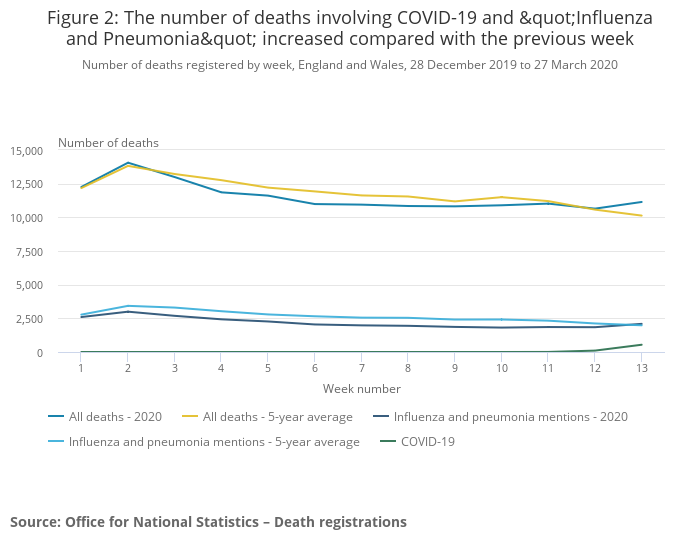

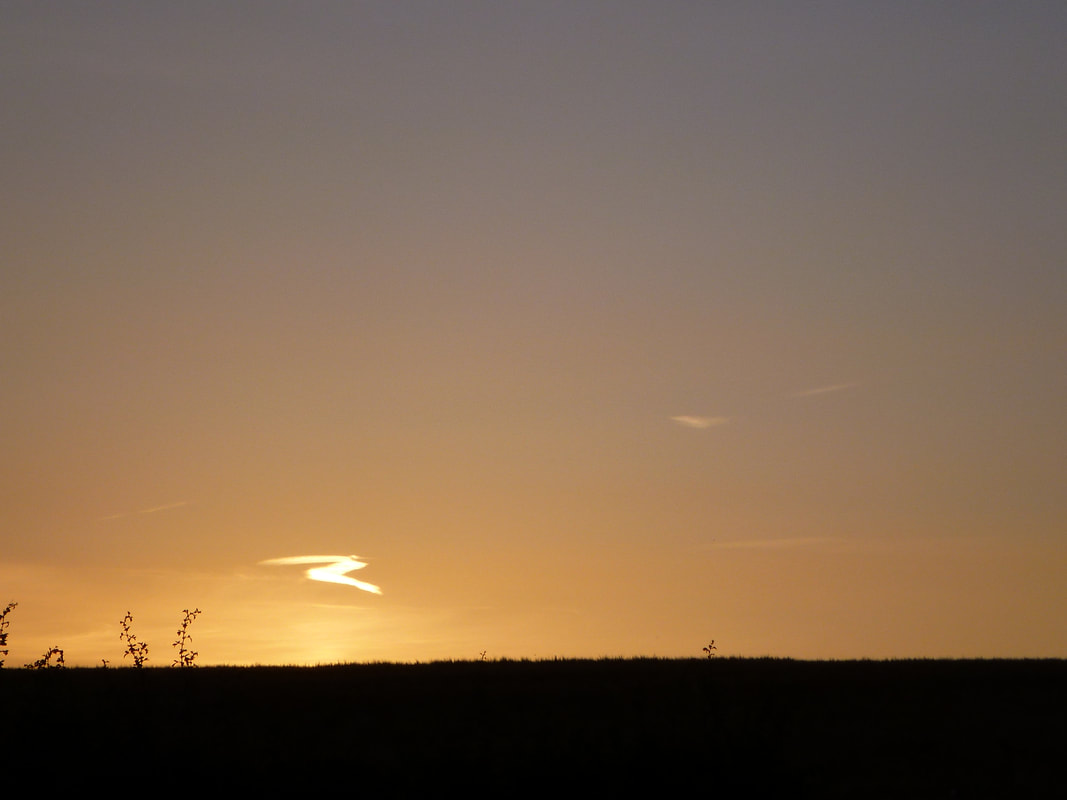
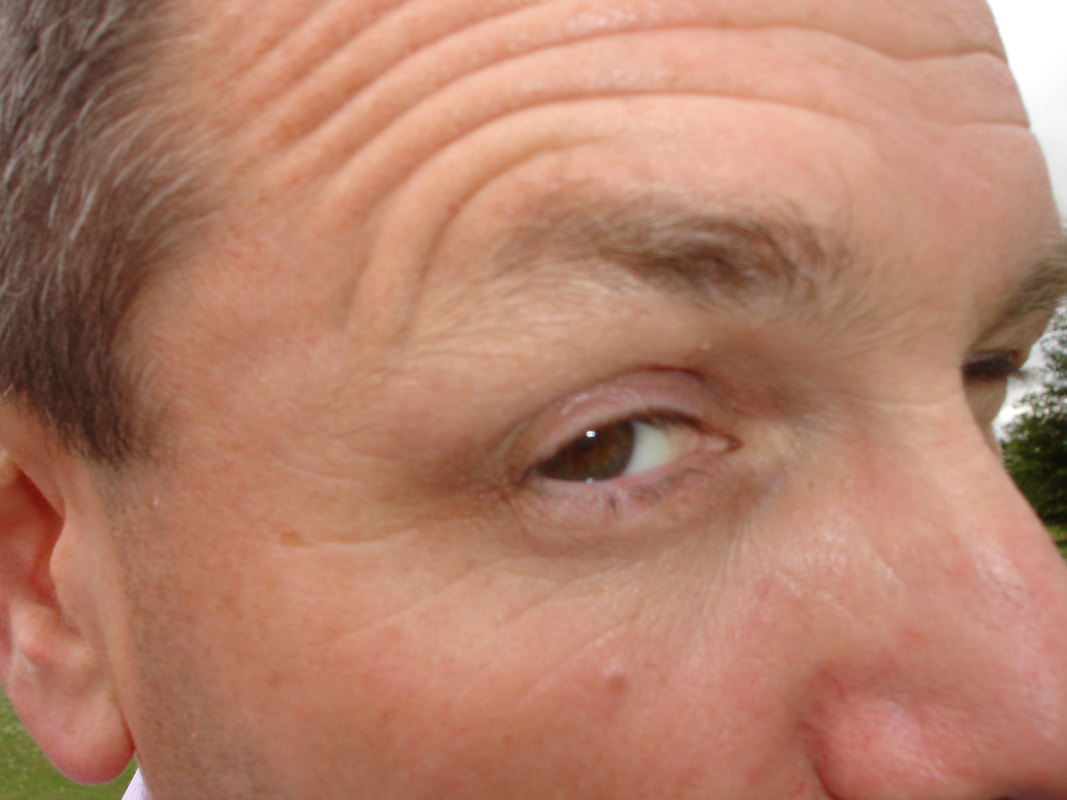
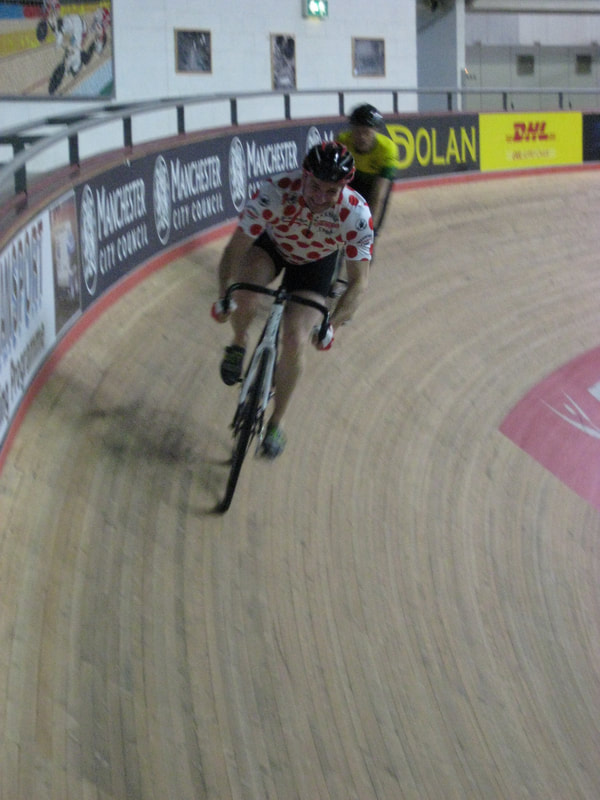


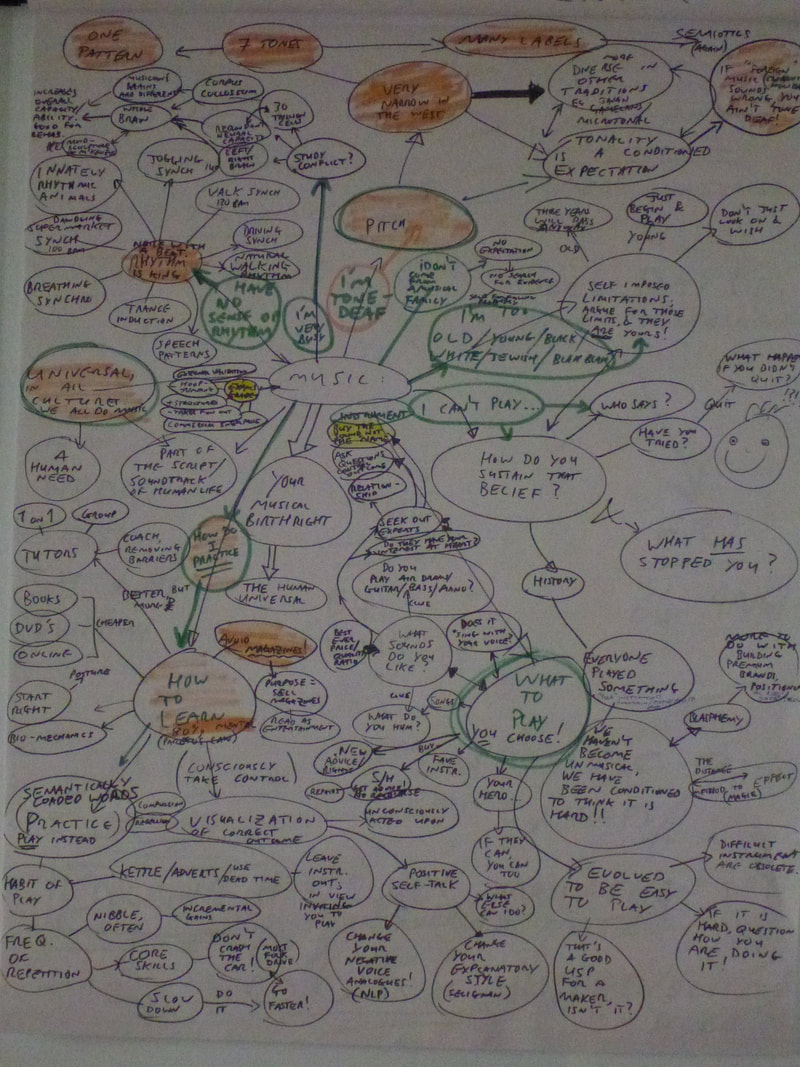




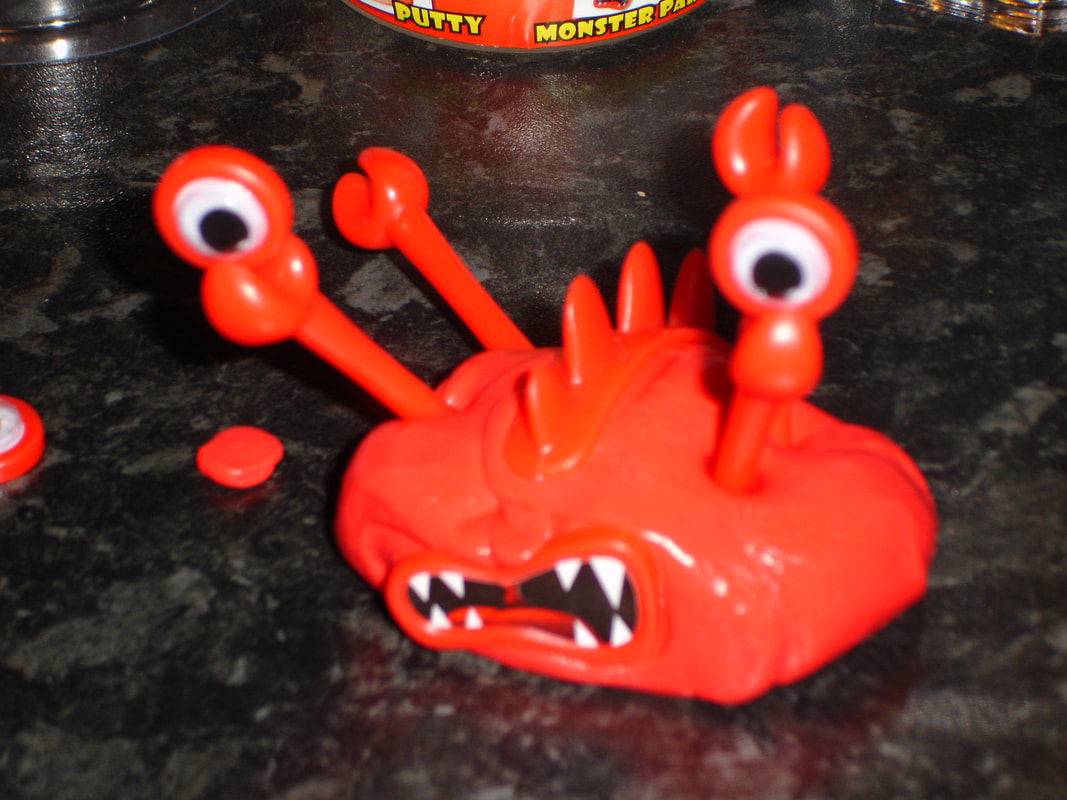
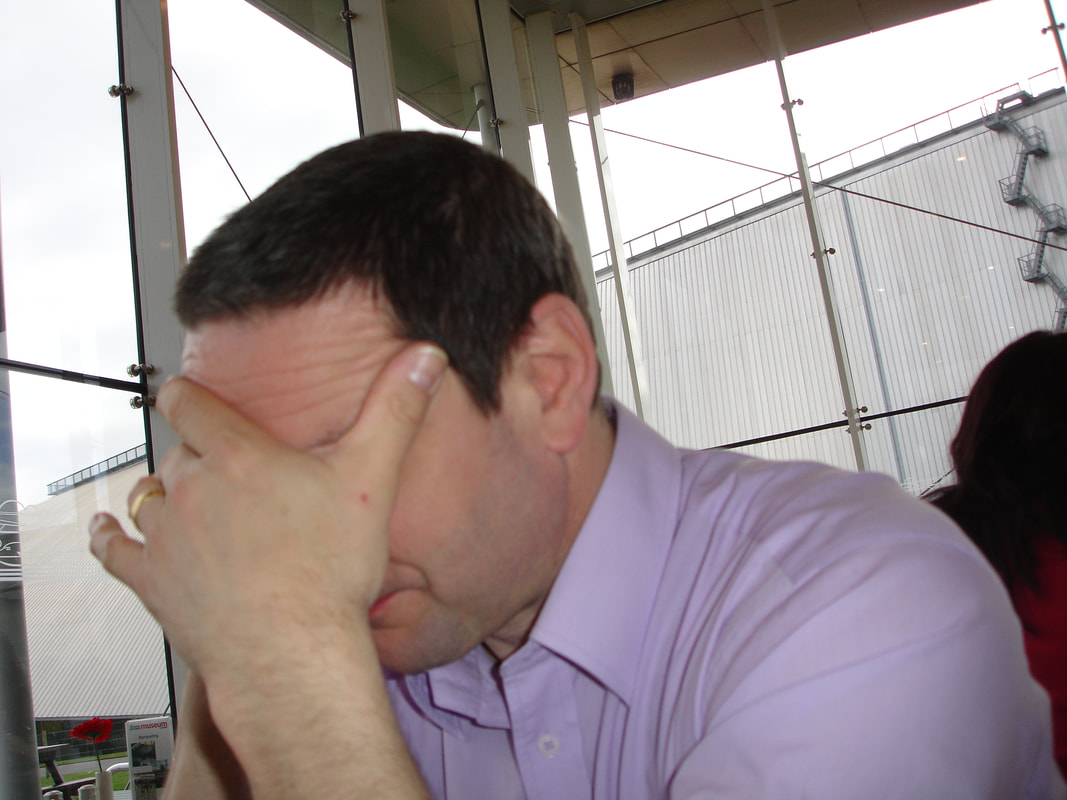
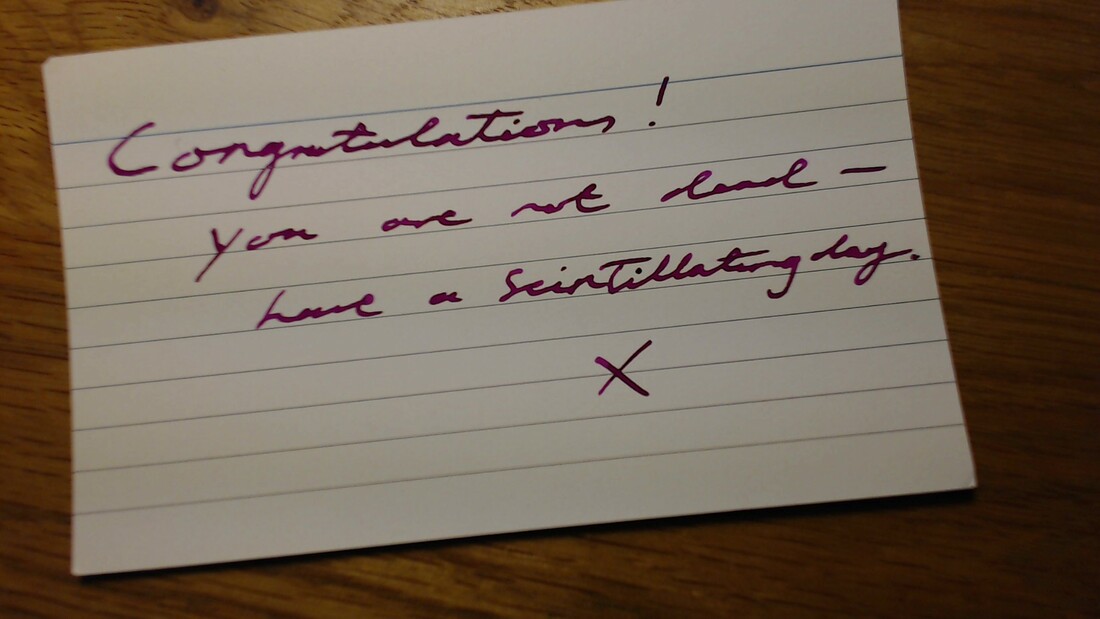



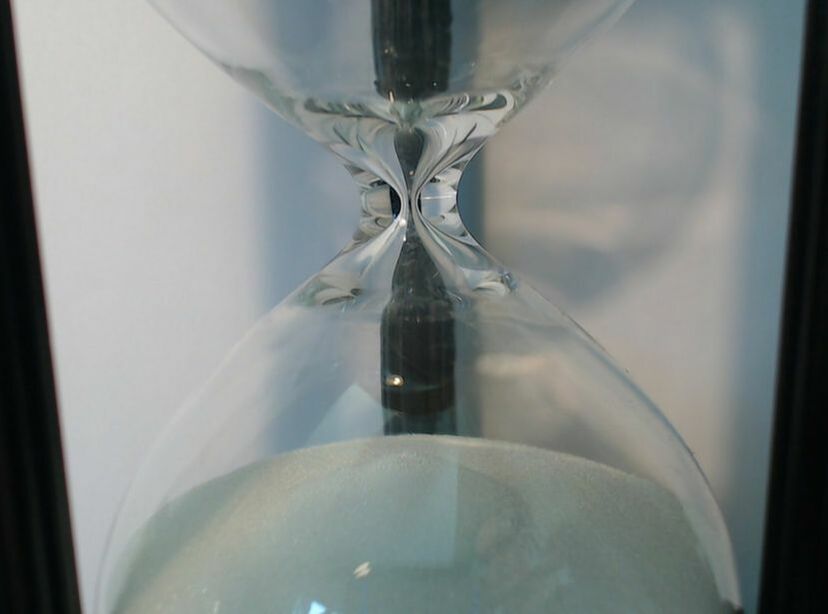

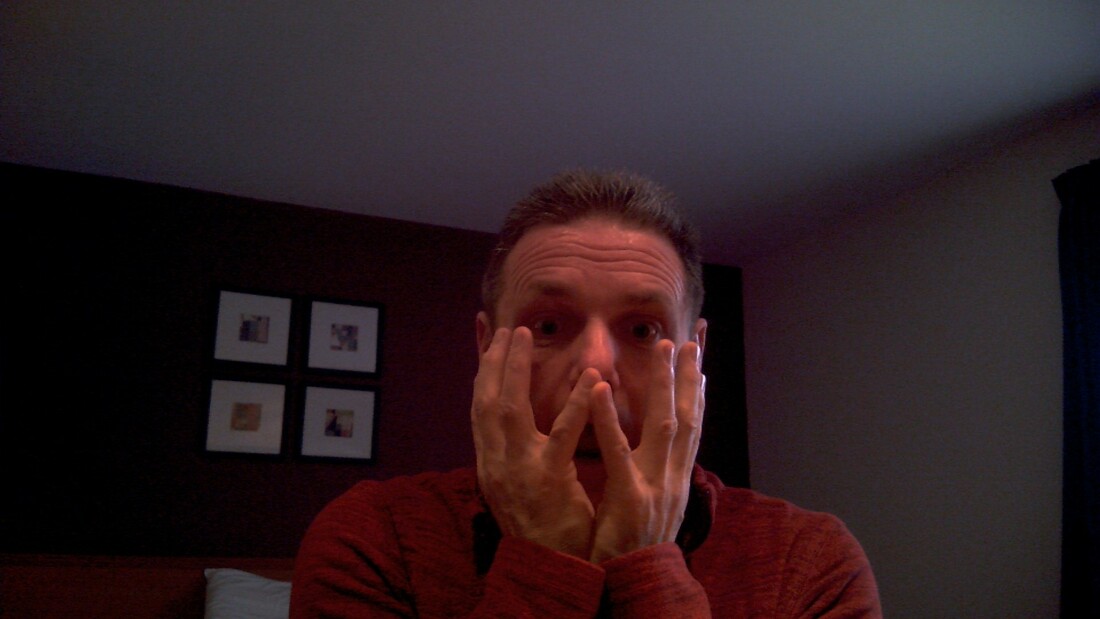

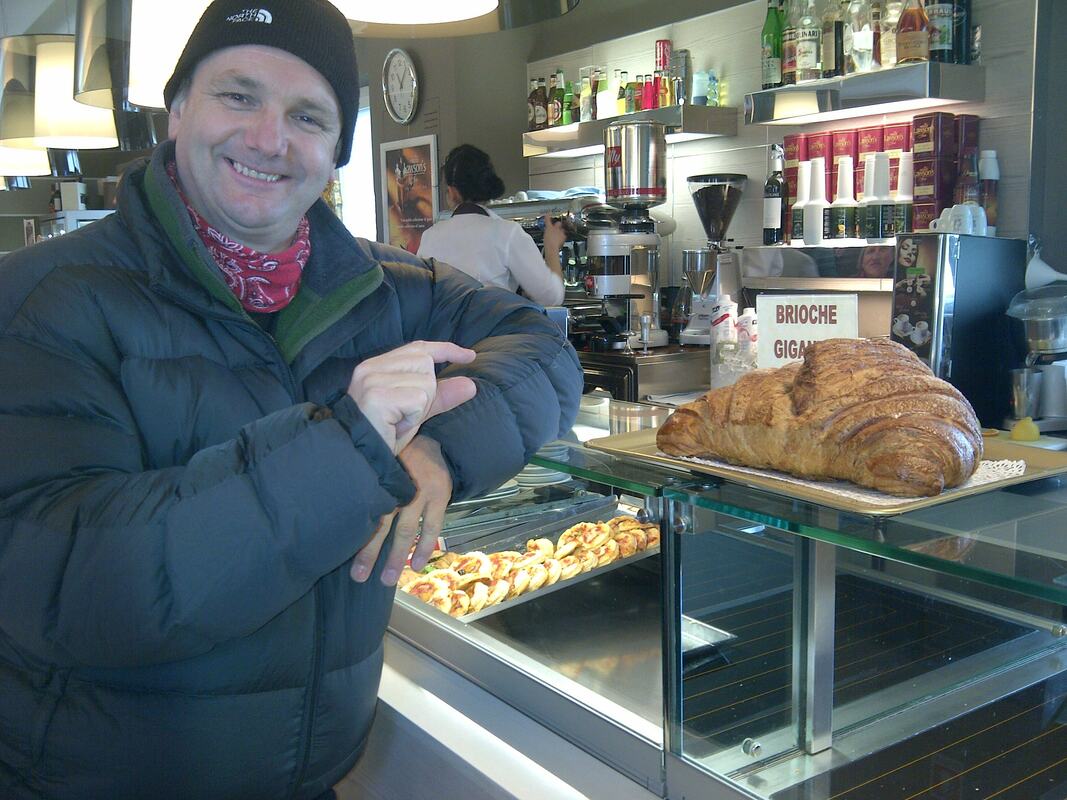
 RSS Feed
RSS Feed